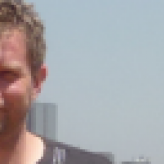Learning and sharing are key components in the VIA Water initiative. Why? Because there is still so much to learn about solving complex problems in the water sector ánd sharing is so important, preventing us from reinventing the wheel and making the same mistakes twice. MDF West Africa was asked to facilitate 3 days of learning and sharing, as well as providing tips and tools on other relevant topics for VIA Water projects, including proposal writing, creative thinking, effective teams, business model development and pitching.
Opportunities for innovation
It was a very packed 3 days indeed. The final programme was a good indication of the diverse learning needs of the participants. Some of them are already well underway with their projects, while others have just started. Some participants have backgrounds in water & sanitation, while others are new to the sector. Whereas this didn’t make things easier, it definitely made the programme more fun and interesting! A diverse group of people is more likely to spark innovation than when very similar people come together. Diversity brings different perspectives, experiences and expertise to the table, allowing people to connect and combine when looking at complex problems and developing creative solutions. Evidence shows that diverse groups outperform homogenous workplaces as they draw on a greater pool of ideas and experiences: their interaction will produce better solutions – provided that these interactions are well facilitated!
The offer of creative solutions was certainly great during the learning tour – from name tags on a stick (for the shorter people among us) to waste-recycling mini-vans and boats made out of cows (don’t ask..) – ideas were plenty, but how can we ensure that they are desirable, feasible and viable? That’s something for the participants to think about next.
Creativity sparked during the Marshmallow competition
Barriers to knowledge sharing
VIA Water places great importance on knowledge sharing.They want VIA Water project owners to share what they are working on, and talk about the challenges and lessons learned. This makes total sense – as it will help others to do their work better and introduce similar projects elsewhere. But do people like sharing knowledge? Discussing the pros and cons for knowledge sharing, it became clear that people think that the negatives outweigh the positives. The list of barriers was long: (lack of) trust, competition, plagiarism, (lack of) time, internet access, fear of failure, low confidence, and so on. Participants were especially concerned about the dangers of sharing trade secrets and worried about other people ‘stealing’ their ideas when they are out there on the World Wide Web. This attitude is especially prominent among the business-oriented crowd – why would you give away your expertise for free? Will it not affect the market for your business?
Is knowledge sharing in an informal context easier?
Building trust, greater benefit for all
So what made this Learning Tour so important? Even with all the technologies available - Skype, WhatsApp, the VIA Water online community - building trust is still very much based on face-to-face contact. For many people, this contact is essential. You want to be able to look someone in the eye and make your assessment. At the same time, sharing your knowledge in a conversation is easier than putting it out there on the web – where it will be for eternity. Sharing our thoughts online is still a new thing for many people – it requires a shift in our thinking. We want to share once we know for sure something works – when the project is ‘finished’. But what if we all shared our unfinished thoughts, our work in progress? We would all benefit from more feedback, critical questions, suggestions and other perspectives. We’d get better at what we are doing and therefore achieve greater (social) impact. And isn’t that what we all want?
In VIA Water projects we are always concerned about the impact


